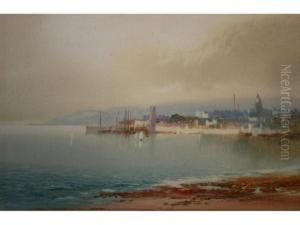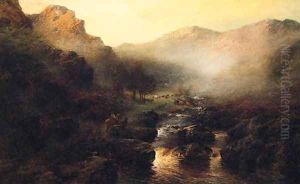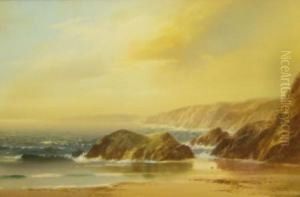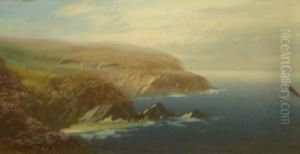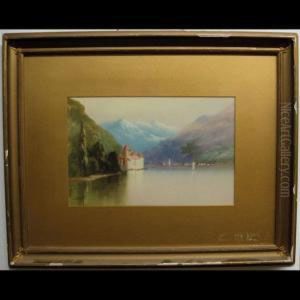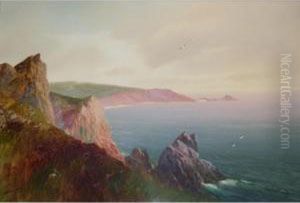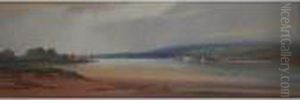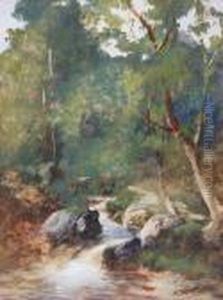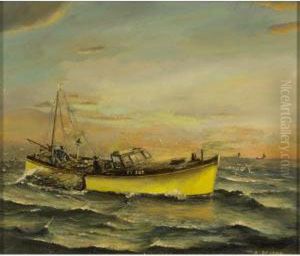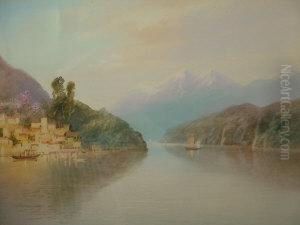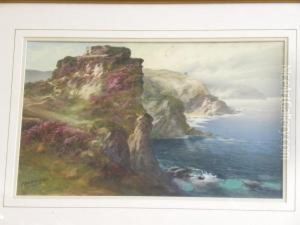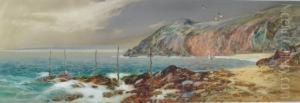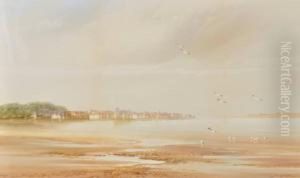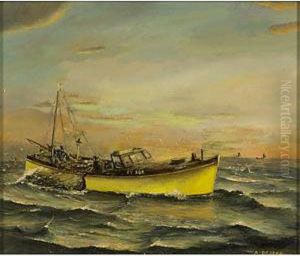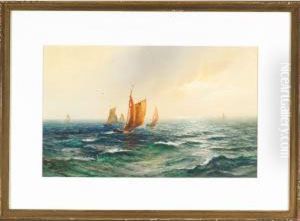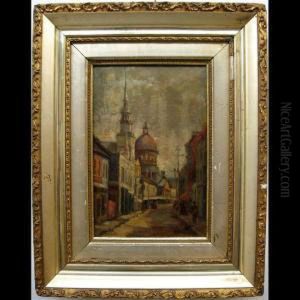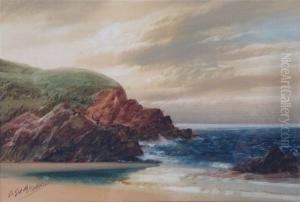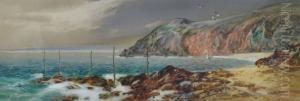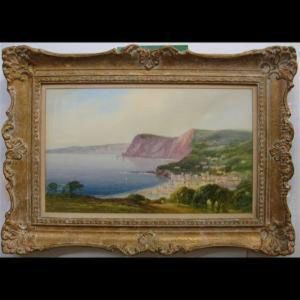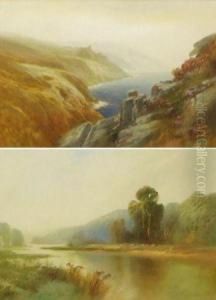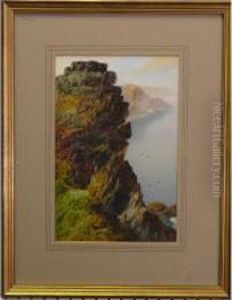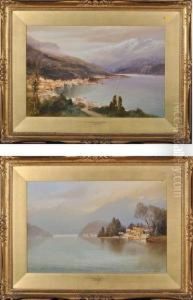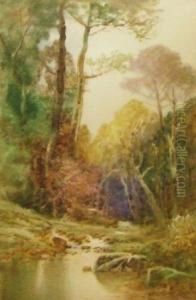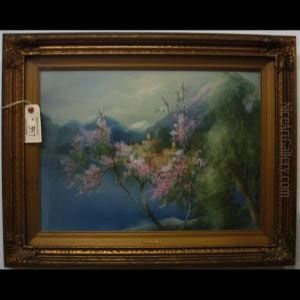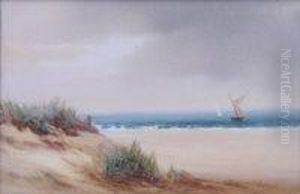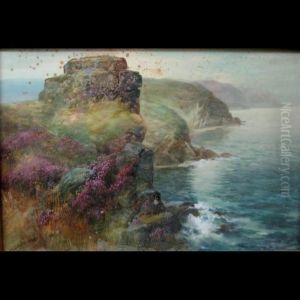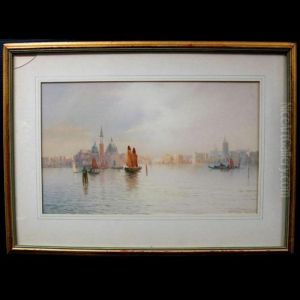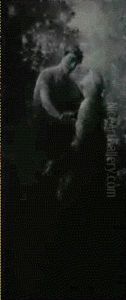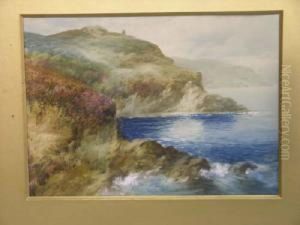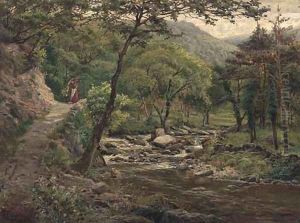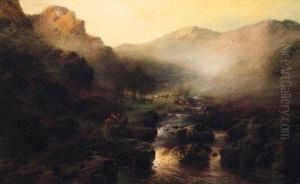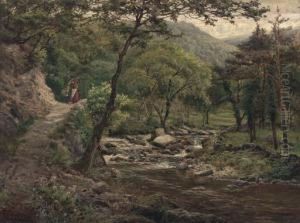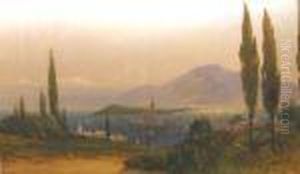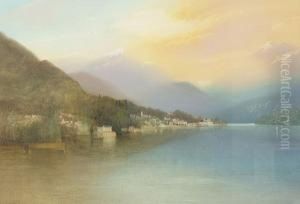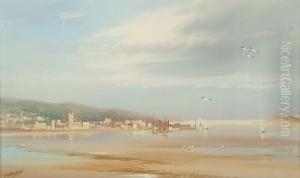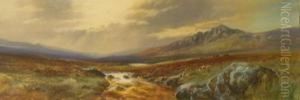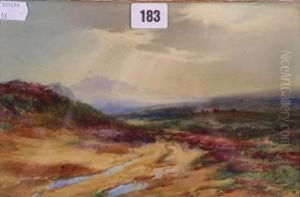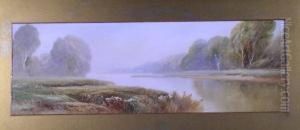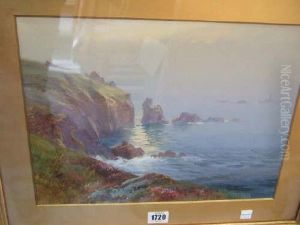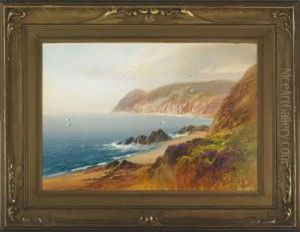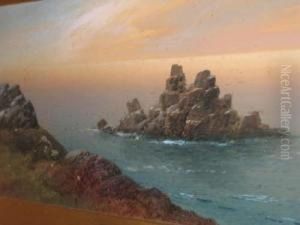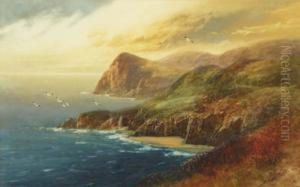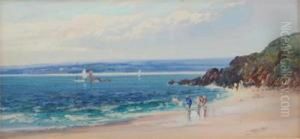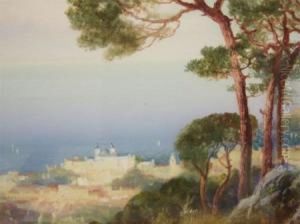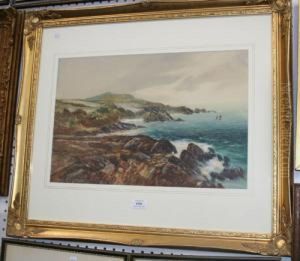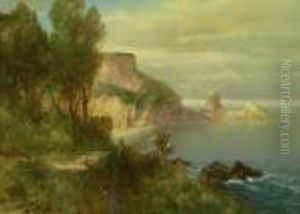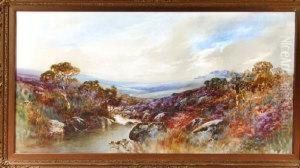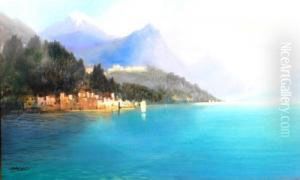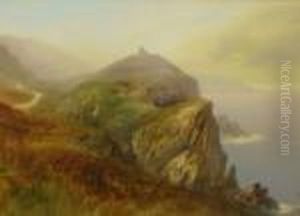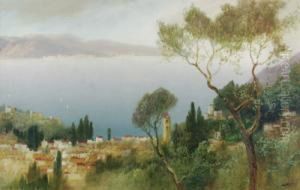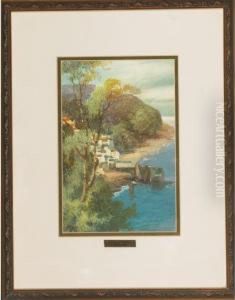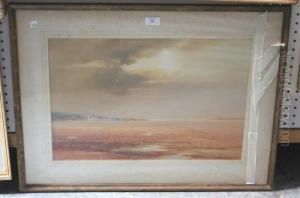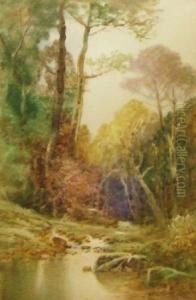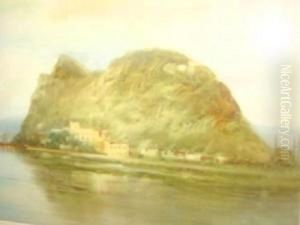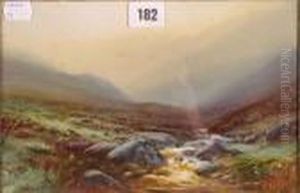John Shapland Paintings
John Shapland was an English artist known for his landscape and marine paintings. Born on July 31, 1879, in Barnstaple, Devon, he was the son of an estate agent. He showed an early aptitude for art and went on to study at the Exeter School of Art. His education continued at the Royal College of Art in London, where he was influenced by the prevailing Arts and Crafts movement.
Shapland's work was characterized by its vibrant color palette and impressionistic style. He often depicted scenes from the Devon and Cornwall coasts, capturing the dynamic interplay of light and nature. His paintings reflect a deep appreciation of the English countryside and coastal areas, and he was adept at conveying the mood and atmosphere of these locales.
Throughout his career, Shapland exhibited widely, including at the Royal Academy and the Paris Salon. His work received commendations and was collected by art enthusiasts of the period. Despite this, he never sought the limelight and preferred to let his work speak for itself.
During World War I, Shapland served in the armed forces, and his experiences during the war influenced some of his later work. He depicted scenes of war with a poignant and reflective approach, contrasting greatly with his peaceful landscapes.
After the war, Shapland continued to paint and exhibit his work. He also contributed to the art community as a teacher, sharing his knowledge and passion for art with younger generations. His teaching influenced a number of artists in the Devon area and beyond.
John Shapland's dedication to his craft and his ability to capture the essence of the English landscape have left a lasting legacy. His paintings continue to be appreciated for their beauty and emotional depth. Shapland passed away on August 5, 1968, leaving behind a body of work that continues to be celebrated by art historians and collectors alike.
